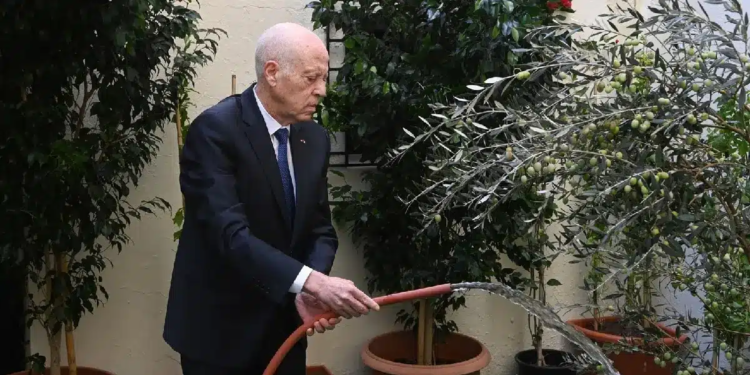On the occasion of National Tree Day, President Kaïs Saïed chaired, this Sunday, November 9, 2025, the ceremony organized at the headquarters of the Higher Council of Education and Teaching.
In a highly symbolic speech, he announced a national education reform aimed at eradicating illiteracy and strengthening the country’s democratic and environmental values.
The president stressed that the choice of the headquarters of the Higher Education Council for this ceremony was not fortuitous, recalling that it symbolizes the starting point of a global educational reform.
A “national and democratic” reform
Kaïs Saïed affirmed that the Higher Council of Education and Teaching will be at the heart of “enlightened reformism”, aiming to rebuild education on national and equitable bases.
“A light will emerge for national and democratic education, accessible to all on an equal footing, with the aim of eradicating illiteracy in all its forms,” he declared.
The objective is clear: to make education accessible to all, without distinction, and to eliminate illiteracy in all its forms. The Head of State spoke of an educational model based on justice, equal opportunities and intellectual sovereignty.
Context: education and illiteracy in Tunisia
According to official figures from the Ministry of Education and the National Institute of Statistics (INS), the illiteracy rate in Tunisia is still around 17% of the population aged 10 and over, with strong disparities between regions.
In some rural areas of the center and south, it exceeds 25%, mainly affecting women and the elderly.
The Tunisian education system, long praised for its generalization of teaching, today faces several challenges:
- School dropouts on the rise (nearly 100,000 students leave school each year).
- Mismatch between training and employment, with high unemployment among graduates.
- Saturation of the public sector and drop in the level of supervision in primary schools.
These figures recall the urgency of structural reform capable of modernizing programs, strengthening the learning of languages and digital skills, and reducing the educational divide between regions.
Also read:
Tunisia: A national strategy for the right to lifelong learning








